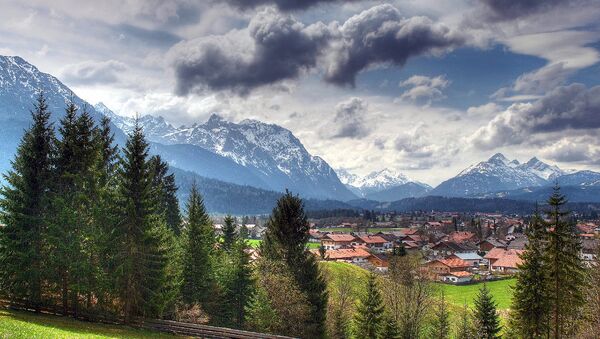One of the most famous mountains in the Allgäu Alps, Hochvogel, can soon literally fall into oblivion as a huge cleft on its summit, which has been there for years, is getting bigger. Researchers, monitoring the peak on the Bavarian-Tyrol border, have already registered some rockfalls. However, they also predict that a massive crash, which would annihilate the mountain immediately, is not excluded.
If this happens, up to 260,000 cubic metres of rock will rush into the valley from the summit which is 2592 metres at its highest peak. However, it is hard to assess whether the mountain will cave gradually or collapse in one “big bang.”
The region is currently being watched with drones, while the landscape changes are carefully measured. The monitoring results show that the crack at the summit is currently over 40 metres long, 8 metres deep and 3 metres wide.
READ MORE: Death Toll in Austrian Alps Avalanche Rises to Four
However, the authorities remain composed, stating there’s no danger to people in the valley. The nearest village is more than two kilometres away from the mountain. Even the closest house to the peak, a 140-year-old refuge of the German Alpine Club, is too far to be impacted by the grand rockfall. Nonetheless, the valley's inhabitants may still endure some inconveniences.
"If the big rockfall happens, then depending on the wind there will be a cloud of dust at Hinterhornbach [region], but the area is definitely not endangered," Tyrolean geologist Thomas Figl says.


